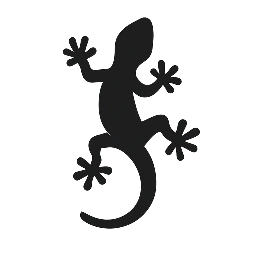So, you’ve welcomed a bearded dragon into your home! These charismatic, gentle lizards make fantastic pets, but one of the most crucial aspects of their care is their diet. As omnivores, bearded dragons require a balanced mix of insects, vegetables, and fruits to thrive. But what exactly can they eat, and what should you avoid?
Feeding your beardie isn’t as simple as tossing some crickets in their tank. Their nutritional needs change as they age, and a proper diet is the cornerstone of their health, preventing issues like Metabolic Bone Disease (MBD).
Consider this your ultimate guide to a bearded dragon’s menu. We’ll break down the staple foods, occasional treats, and dangerous items to keep your scaly friend happy and healthy for years to come.
The Foundation: Staple Foods for Daily Feeding
Staple foods are the core of your bearded dragon’s diet. These are items that are nutritionally balanced and can be fed daily or every other day.
Staple Insects (The Protein Source)
For baby and juvenile dragons, insects should make up about 70-80% of their diet. For adults, this ratio flips, with insects making up only about 20-30%.
- Dubia Roaches: Often considered the gold standard for feeder insects. They are high in protein, low in fat, and have a good calcium-to-phosphorus ratio. Plus, they don’t smell, can’t climb smooth surfaces, and don’t make noise.
- Black Soldier Fly Larvae (BSFL): Also known as NutriGrubs®, CalciWorms®, or Phoenix Worms®. These are nutritional powerhouses, naturally high in calcium, so they often don’t require dusting. They are an excellent staple.
- Crickets: A classic choice. They are readily available and encourage your dragon’s natural hunting instincts. Ensure they are gut-loaded (fed nutritious food 24 hours before being fed to your dragon) to pass on those nutrients.
- Silkworms: A fantastic, soft-bodied feeder insect. They are high in calcium, low in fat, and very hydrating. They are a bit more expensive but are an excellent choice.
Pro-Tip: Always ensure feeder insects are appropriately sized. The insect should be no longer than the space between your bearded dragon’s eyes to prevent choking or impaction.
Staple Vegetables (The Greens)
For adult bearded dragons, fresh greens should make up 70-80% of their daily food intake. A varied salad is key!
- Collard Greens: High in calcium and other essential vitamins.
- Mustard Greens: Another excellent source of calcium and Vitamin A.
- Turnip Greens: A great choice, rich in calcium and low in oxalates (compounds that can interfere with calcium absorption).
- Dandelion Greens: Both the leaves and flowers are a favorite and are very nutritious. Make sure they are pesticide-free!
- Butternut Squash: A fantastic source of Vitamin A. It should be peeled and grated or finely chopped.
- Acorn Squash & Spaghetti Squash: Similar to butternut squash, these are great options when served raw and grated.
Fun and Healthy: Occasional Treats
These foods are safe and healthy but should be offered in moderation (a few times a week) due to higher sugar, water, or fat content.
Occasional Insects
- Superworms: A good source of protein but high in fat. Best reserved as a treat for adult dragons.
- Waxworms: Very high in fat, think of these as “lizard candy.” They are great for helping an underweight dragon gain some weight but should be fed very sparingly.
- Hornworms: High in moisture and calcium, making them an excellent treat for hydration. Due to their rapid growth, feed them to your dragon quickly!
Occasional Vegetables and Fruits
Fruits are high in sugar and should make up no more than 10% of the overall diet.
- Vegetables:
- Bell Peppers (especially red)
- Carrots (grated)
- Zucchini
- Broccoli (in very small amounts, as it contains goitrogens)
- Peas
- Green Beans
- Fruits:
- Berries (blueberries, raspberries, strawberries)
- Melon (cantaloupe, watermelon)
- Papaya and Mango (great sources of calcium)
- Apples (peeled)
- Peaches
DANGER ZONE: Foods to Avoid
Some foods are harmful or even toxic to bearded dragons. Never feed them the following:
- Fireflies (Lightning Bugs): These are extremely toxic and can be fatal.
- Avocado: Highly toxic to many reptiles.
- Rhubarb: Contains high levels of oxalic acid, which is poisonous.
- Lettuce (especially Iceberg): Offers almost no nutritional value and is mostly water, which can cause diarrhea.
- Wild-Caught Insects: They can carry pesticides, parasites, and diseases. Stick to commercially bred feeder insects.
- Spinach and Beet Greens: While not toxic, they are high in oxalates which bind to calcium and prevent its absorption. They can be fed very rarely but should be avoided as a staple.
- Onions, Garlic, and Chives: These are all toxic.
Don’t Forget the Supplements!
Even with a perfect diet, captive bearded dragons need supplements to prevent health problems.
- Calcium with D3: This is non-negotiable. Vitamin D3 is essential for your dragon to metabolize calcium. Without it, they will develop Metabolic Bone Disease (MBD), a debilitating and often fatal condition. Dust feeder insects with a “calcium with D3” powder 3-5 times a week for adults and nearly every day for babies/juveniles.
- Multivitamin: A good reptile multivitamin provides other essential nutrients. Use this supplement to dust insects 1-2 times a week, on a day you are not using calcium.
Water is Life
Hydration is key! While dragons get most of their moisture from their food, you should always provide access to fresh, clean water in a shallow dish they can easily get in and out of. Many dragons won’t drink from a bowl, so you can also hydrate them by:
- Misting: Lightly misting their salad with water.
- Baths: Giving them a weekly soak in warm, shallow water. This helps with hydration and shedding.
By providing a varied, well-supplemented diet, you are giving your bearded dragon the best possible foundation for a long, healthy, and happy life. Happy feeding!

Leave a Reply